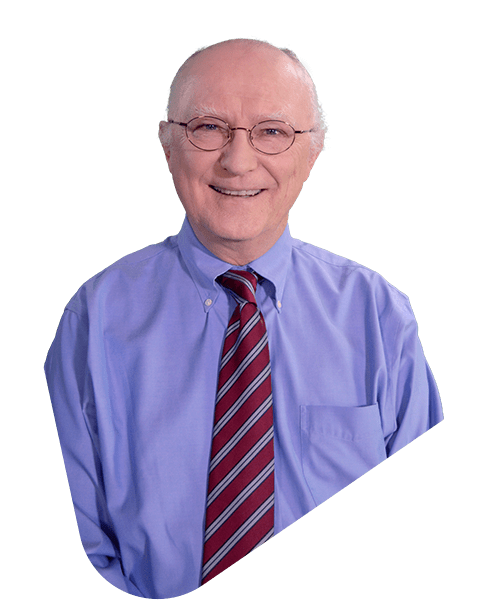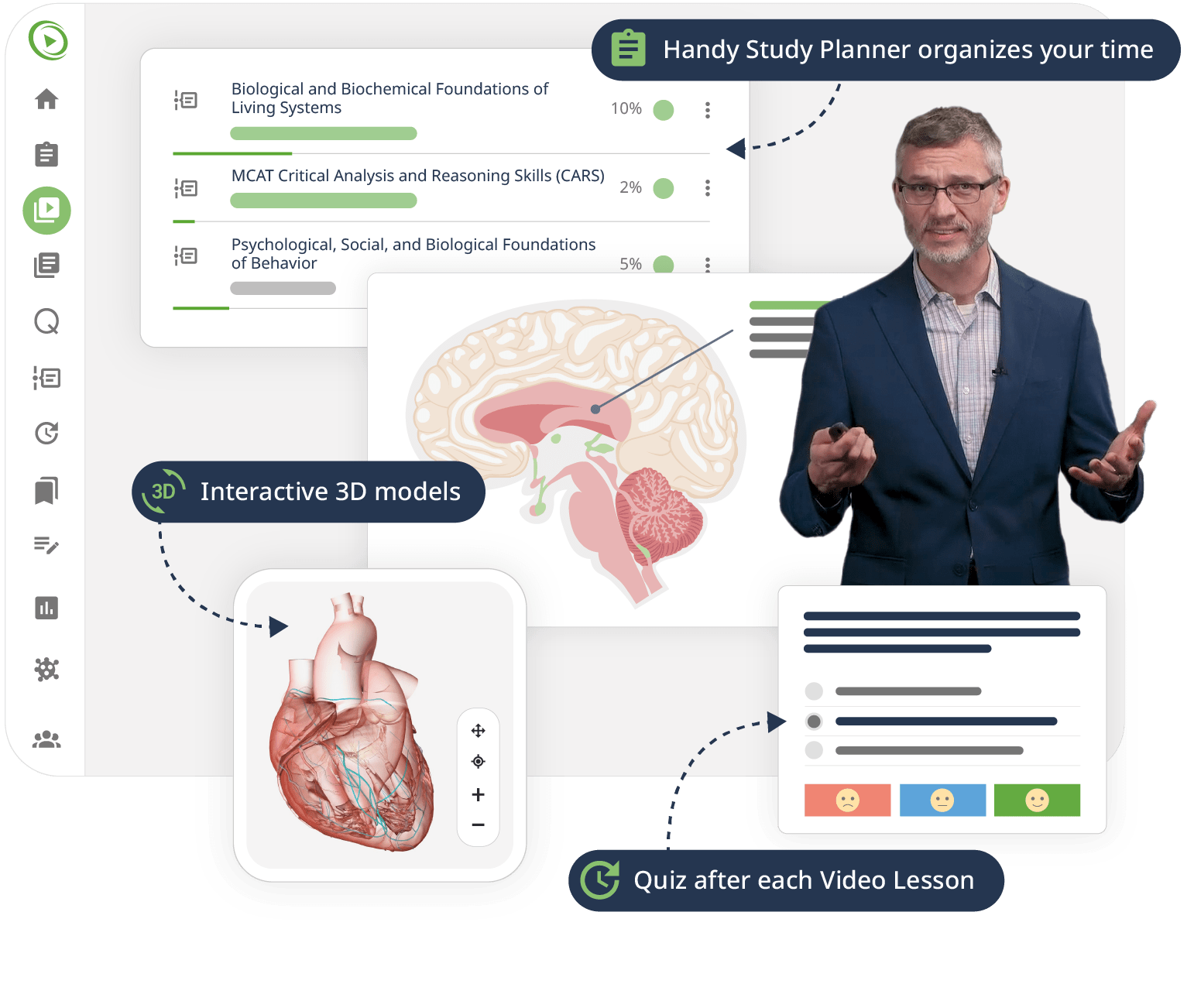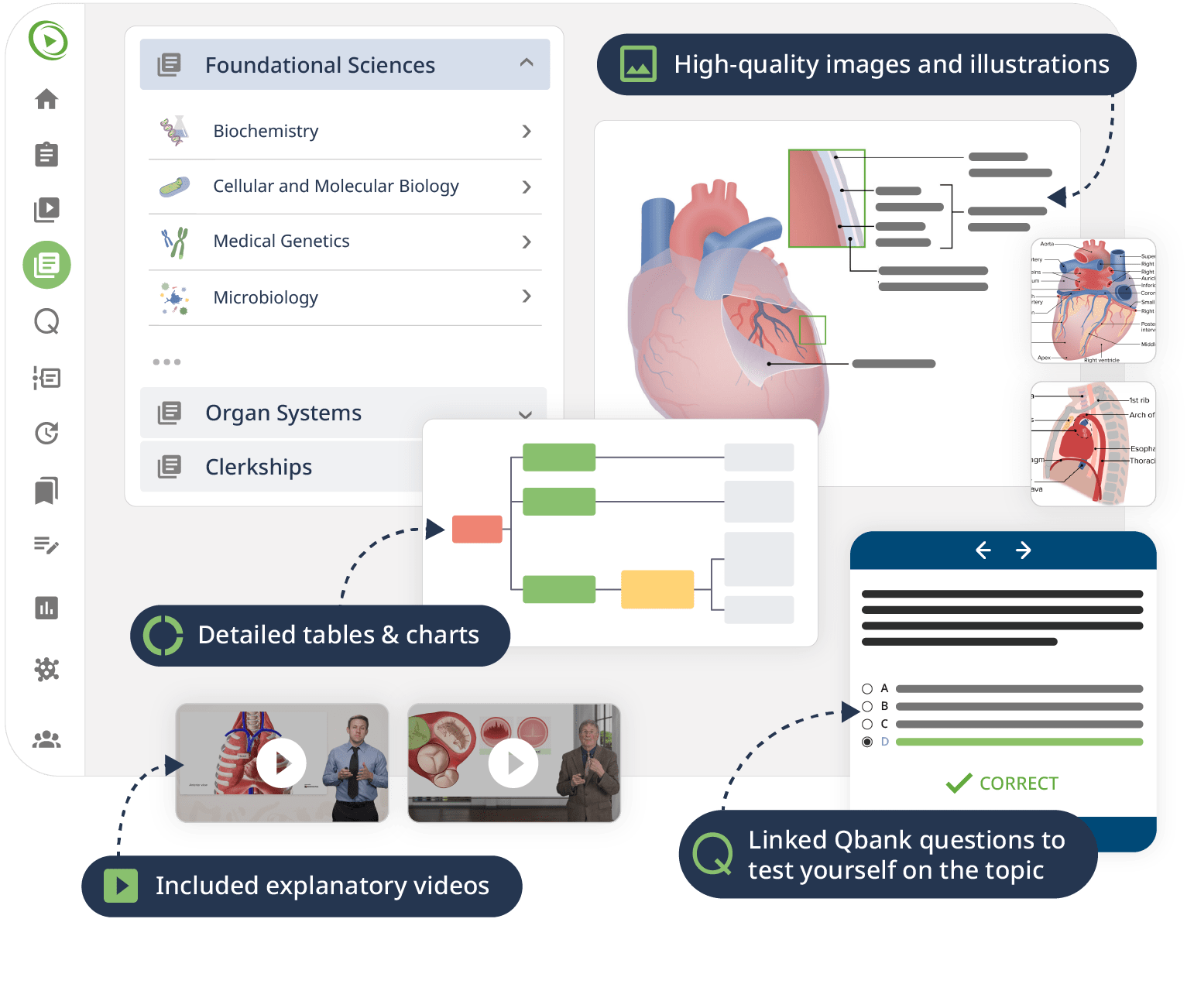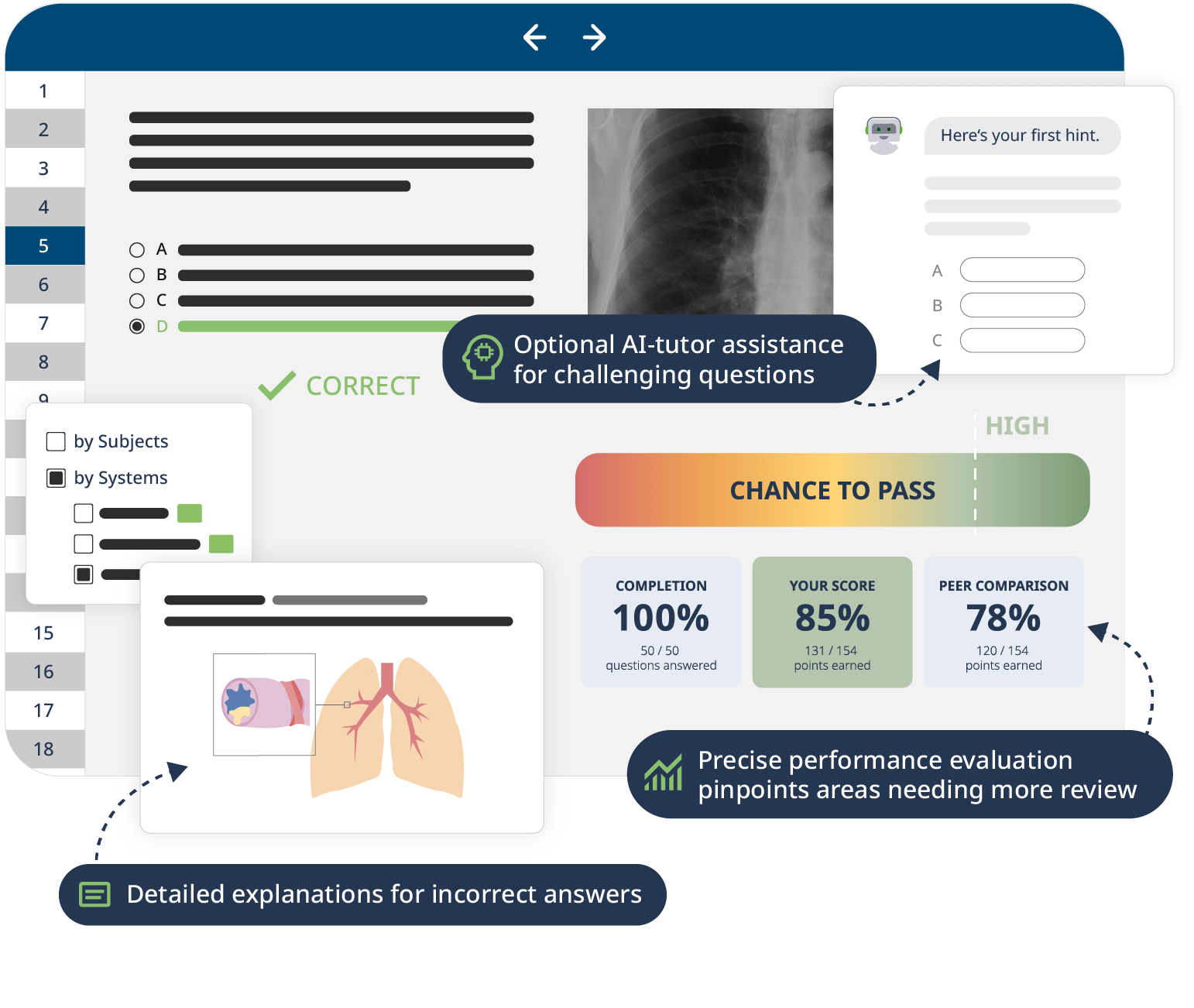Start your MCAT biochemistry and biology review course
to get prepared for the MCAT section “Biological and Biochemical Foundations of Living Systems”
The biological and biochemical foundations of living systems are integral to all aspects of medicine and are intensely tested on the MCAT. Grasping the intricate details of the subject can be overwhelming for new students.
This course covers the key topics you need around the basics of biomolecules and the principles of cellular functioning, such as the cell structure, the cell cycle, cell division, and gene expression. Taught by a team of experienced educators who are experts in their respective fields, this course helps you to not only memorize concepts, but learn how to apply them to solve complex problems and new scenarios. This approach not only prepares you for the MCAT, but also for the critical thinking required in medical school and beyond.
The combination of Video Lessons with interactive quiz questions, downloadable study materials, and a MCAT-style Qbank makes it easy to understand and retain the topics.
By the end of this course, you will have a solid understanding of the biological and biochemical foundations, setting you up for success on the MCAT as well as in your medical studies.










